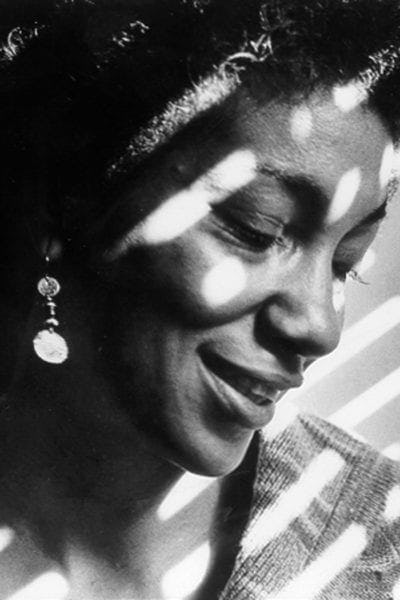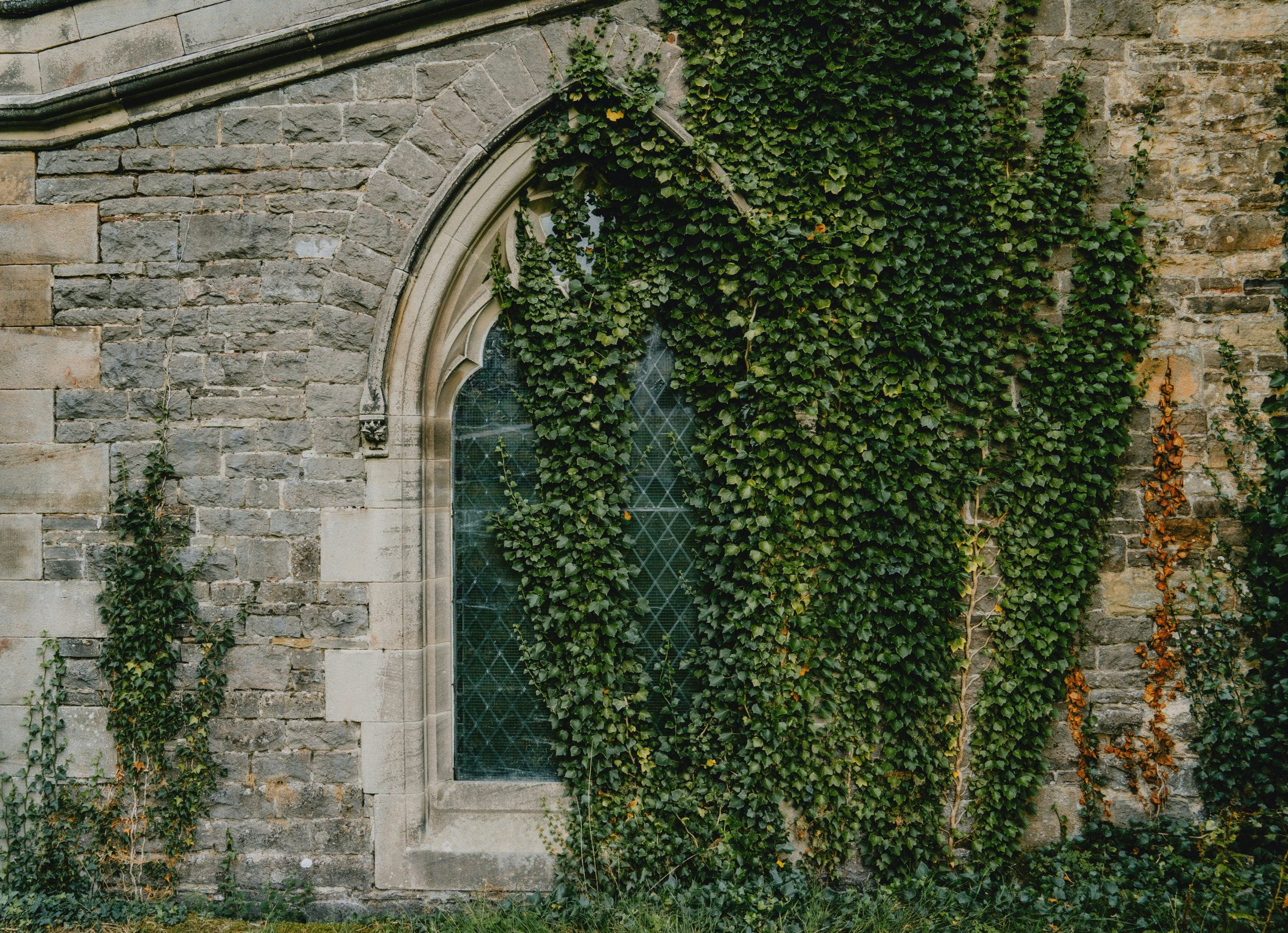"I am not wrong: Wrong is not my name" — June Jordan, "Poem about My Rights"
When I was seventeen, I wrote a one-man play called “Gates and Chains,” dramatizing the Christian journey of faith. The protagonist, a version of myself, ultimately fails to progress in her spiritual journey because she refuses to release the delicate chain on her wrist. The chain of “familiarity” is comfortable, so she keeps it. Jesus, personified in the play as a gate-guard, laments that the protagonist does not trust him completely.
Rereading “Gates and Chains” at 25, my wholesale embrace of a masculine God and wayward, needy, untrustworthy portrayal of myself sticks out more than the spiritual meaning I intended to convey. I was — in the mentality of the play — wrong. I was uninformed and ill-equipped. I made a bad decision. And while I was a stand-in for an average human, intended to be the character the audience saw themselves in, my early writing reflects the belief that I, this fallen human, was undeserving of faith in myself.
In the unintentional message of the play, I recognize the crux of why questions of *faith* feel so perplexing for me now. I mourn my early internalization of evangelicalism’s message that I – Black, female – was unworthy of trust. Today, I am entirely repulsed by the idea of a male God.
A masculine presence watching over and punishing and giving grace (or not) is no longer attractive to me. I don’t want a God more deserving of my trust, devotion, and love than my best friend, my mother, or my own Black female self. I continually work to make that looming masculine figure a periodic occurrence in my life rather than an omniscient, overseeing force. I am un-learning evangelical faith by learning to have faith in myself again.
In evangelical terminology, I have “lost” the zeal for Christ that sprung out of every pore as a teenager. But “lost” is the wrong verb; in truth, I have relinquished my teenage zeal. I laid it down (at the cross?) and didn’t pick it up again. I let it go. In its stead, though, what? Do I still have faith?
The dictionary defines faith in at least two ways: “1. complete trust or confidence in someone or something” and “2. strong belief in God or in the doctrines of a religion, based on spiritual apprehension rather than proof.”
Colloquially, “faith” and “trust” often overlap. When we “have faith” in something — a situation to work itself out, a person to make the right decision, a God to make sure we are okay — we could also be said to “trust” that entity. Faith and trust are nearly the same thing, but the definition above has an intriguing ambivalence built into it.
Part two defines faith in relation to “spiritual apprehension.” Apprehension,” even of the spiritual variety, is a mixed bag. It refers to “anxiety or fear that something bad or unpleasant will happen,” “understanding,” and “the act of arresting someone.” This description of faith, incorporating various components of apprehension, reflects my own experience of and movement away from evangelical faith to something else.
In the white evangelicalism I grew up with, faith was a firm stand against anxiety. Faith was the confidence and assurance that you were in the right, that God was on your side, that you would be okay both in heaven and on earth. “Love, joy, peace, and patience” were a Christian’s birth right; there’s no need for anxiety when there’s nothing to worry about.
Faith eliminated anxiety and replaced it with certainty. The boundaries in evangelicalism were black, white, and bold. Policing, of ourselves and each other, was necessary to ensure righteousness. One could be constantly on-guard for signs that they or another have “slipped,” stumbled, and generally deviated from the straight and narrow path of evangelical faith.
Policing was gendered as well. Women and teenage girls were often “stumbling blocks” for our male peers, the sexual temptation latent in our leggings, tank tops, and bathing suits. Our movements, clothing, and language had to be carefully monitored, by ourselves and others, to avoid causing our brothers to “stumble.”
Understandably, when eternal damnation was always a possibility, fear was a central emotion. Punishment awaited anyone who rejected God, anyone who trusted their own judgment and followed their deepest yearnings and “deceitful hearts” (Jeremiah 17:9). God was rightly the One whom fear ought to be directed towards, the One who could kill and heal — and, as the Bible demonstrates repeatedly, He did both.
And God was a “He.” How else could He be a Father? How else would we know He had absolute control? How else could history have recorded His actions so completely? Though not biologically male (that’s Jesus), God socially and spiritually exuded masculinity through almost every pore. When affectionate and caring language was required, God may be described with maternal characteristics, but by and large God was an all-knowing, all-seeing masculine presence in our evangelical Christian lives.
In my twenties, the masculine God of evangelical faith began to sour and rot. I craved something else, something that took all kinds of women’s experiences seriously, something that offered hope if not certainty.
I turned to women writers, looking for and finding spiritual truths between their pages. Sister Outsider (Audre Lorde), A House of My Own (Sandra Cisneros), and Their Eyes Were Watching God (Zora Neale Hurston) became sacred texts: regarded with reverence, marked up, highlighted and memorized. I looked for and found my own kind of faith.
In The Cancer Journals, Audre Lorde defines faith as “the name of the war against despair.” Lorde’s battle is not “pie in the sky,” but a fight for her actual life. She’s fighting — rallying — against the death that is cancer.
Lorde returns repeatedly to the imagery of the Dahomian Amazons, warrior women who cut off a breast to enable them to be better archers. She wants the world to see — to make visible — women who have battled breast cancer and overcome it. Lorde wants the world to reckon with women who have “faced death” and won.
The facing of it is crucial, for Lorde. It is not useful to wear a prosthetic or alternatively contort her body to make the masculine world around her more comfortable with her appearance. As James Baldwin wrote, “nothing can be changed until it is faced.” Faith is part of Lorde’s facing, part of her war.
While Lorde chronicles her fight with cancer in journals, some days’ entries brief and somber, Terry Tempest Williams ponders her late mother’s life and empty journals in When Women Were Birds: Fifty-Four Variations on Voice. Williams also chooses to move away from her teenage faith. Her memoir-like work partly chronicles her own questions of faith and eventual decision to leave the Mormon church. In Williams, I found a young woman asking similar questions and an older author with some conclusions.
I picked up Williams book the semester I graduated from an evangelical Christian college. Willliams’ reinterpretation of key biblical texts, like the story of Adam and Eve, altered my view of myself. She wrote, “what I came to appreciate was how the transgression of Eve was an act of courage that led us out of the garden into the wilderness.” At 22, I longed for wilderness; I craved a way off the straight and narrow path before me, with its pre-ordained destination.
Williams honors Eve’s transgression, recognizing that “to find our sovereign voice often requires a betrayal. We just have to make certain we do not betray ourselves.” What had my life in evangelicalism been if not a betrayal of myself, continually denying and policing my desires, constantly silencing my own voice? Williams ends the passage with the call Eve heard – not from the Devil, but from “her own instinctive nature saying, Honor your hunger and feed yourself.”
Williams also positions faith and despair in relation to each other. For Williams, “Good work is a stay against despair.” Good work holds despair at bay, keeps it away, keeps one from going under. And “writing,” Williams quotes her friend Steve, “is always an act of faith.” Williams’ war, though different than Lorde’s, offered crucial insight to my own.
The faith I’ve claimed in adulthood wars against despair, but not with the certainty of my evangelical youth. Certainty isn’t the counter to despair. It isn’t what I’m craving when I feel waves of sorrow or loneliness or anger or fear might take me under. It isn’t what I’m craving during the hours anxiety keeps me in tears or depression keeps me in bed. Certainty and complete confidence feel out of reach when the world is falling apart.
Amidst despair, the anxious worrying or numbness or sorrow or despair feels certain. It feels like slowly being buried alive or pulled underwater. It feels ultimate, totalizing, enveloping, suffocating, drowning. Amidst despair, I yearn for the possibility that things will change. I crave the knowledge that there is something just around the bend that will make a bit of difference. And women’s writing often reminds me that there’s a way out that doesn’t require relinquishing or letting go of myself.
For me, faith is possibility plus choice. Having faith is choosing to believe there are other possibilities, deciding that something else might exist and — here’s the kicker — working and waiting to find out if I’m right. Faith is, essentially, the belief that there are possible alternatives to the status quo.
Faith believes there could be something other than 17-year-old white boys with guns shooting Black Lives Matter protestors in Wisconsin, something other than Covid-19 infection rates climbing and people dying and whole social circles moving on as if nothing world-altering is happening. Faith works towards something besides misogynistic religions that teach teenage girls not to trust their own judgment.
Faith clings to the chance that there’s something besides the shitshow of a world we’re living in. And, as Lorde and Williams remind us, good work — writing, marching, registering to vote and helping others do the same, supporting the USPS, running for local office, teaching undergraduates online, wearing a mask, going to work because you’re “essential” — is an act of faith, a vital contribution to the war against despair, a step towards the possibility that something else exists. This is the faith I hold onto.
This faith is less certain and could hardly be defined as “completely confident.” It’s more exploratory, sometimes contradictory, but always beautiful and always true. This faith hits the spot but doesn’t leave a nasty taste in my mouth. It won’t sour over time. It works actively against something that tries to kill me every day and fails; this faith is a celebration (Lucille Clifton).
The kind of faith I practice now, the faith that motivates and invigorates me, is not the assurance I wrote with as a teenager but the complexity, awe, novelty, surprise, and conviction in women’s writing and other good work. This faith is June Jordan’s I am not wrong: Wrong is not my name.
And I am not wrong. I am not bitter or apathetic. I am angry, passionate, joyful, tired, and sure of something else: sure that, whatever may change, I will not lose myself (Glennon Doyle, Untamed). I will not hand my myself over to a masculine force, be it human or mystical. I will believe in, wait for, and work towards possibilities for something other than what we are currently living through. And that faith, enacted through my own writing and other good work, will continue to be a stay against despair.
Featured image of June Jordan by Gwen Phillips.
Kimi is a writer, Black feminist, PhD candidate, and gluten free baker. Her writing and research explores sexuality, gender, faith, and race. She was raised in an evangelical Christian church, but her faith now reflects the spiritual insight of womanist theologians, Black feminist thinkers, and women writers.
Discover more from Kimi Bryson.









